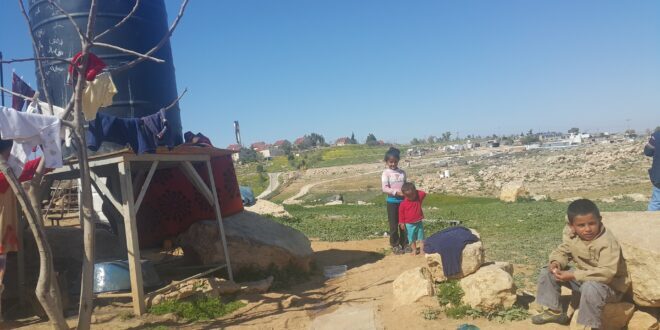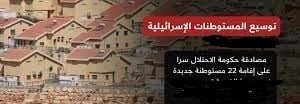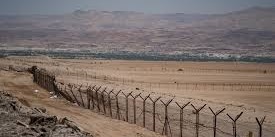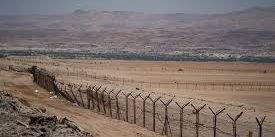By: Madeeha Al-A’raj
The National Bureau for Defending the Land and Resisting Settlements stated in its latest weekly report that Occupation Gov’t intends to double the budgets transferred to the settlement councils in the West Bank to be used in monitoring and documenting Palestinian construction in Area C, for the years 2023 – 2024. A budget of NIS 40,000,000 will be allocated to the Local and Regional Settlement Councils. The settlement is looking forward to double the budget that will be allocated to settlers in order to provide them with drones and patrols that monitor Palestinian construction in Area C, with the aim of fighting the Palestinian presence there.
Knowing that Ministry of Settlement, headed by Tzachi Hanegbi has approved in 2020 a NIS 20,000,000 budget to monitor Palestinian construction in Area C. In recent years, the so-called ‘Land Patrols’ have been operating and active in the West Bank settlements, which monitor Palestinian construction and agriculture, where the occupation patrols submit their reports to the ‘Civil Administration’ and the army in order to issue notices of demolition and stop construction for the Palestinians. The Civil Administration also operates a hotline calling on settlers to report Palestinian construction work, which is known in Israel as the ‘Campaign on Area C’, as part of a plan to empty Area C of Palestinians and annex it to Israel.
At the same time, the Occupation Authorities are promoting preliminary plans for about 6,500 settlement units in new or existing settlements in East Jerusalem, despite their repeated commitments to a temporary halt to construction in the settlements.
Moreover, the Israeli Local Planning Committee in Jerusalem submitted plans for the Wadi Joz Business Center ‘Silicon Valley’, the Lower Canal, and Ramot. The Local Planning Committee in Jerusalem had recently held discussions on 5 settlement plans in French Hill // Mount Scopus 2, Givat Shaked, Pisgat Ze’ev, and Ramot, and the objections submitted on the lower canal plan on March 29 and rejected it.
Whereas the lower canal plan includes the construction of 1,465 housing units and would lead to the expansion of the territorial contiguity between ‘Har Homa and Givat Hamatos’, which would lead to an increase in settlement wedge between the southern end of East Jerusalem and the Bethlehem area in the West Bank.
As for the Wadi Al-Jouz Business Center, despite the claim that it will increase job opportunities for Palestinians and boost the economy in East Jerusalem, there is a deep concern that it will eventually lead to the eviction and demolition of about 200 Palestinian companies.
As for the Ramot North A and Ramot North B Scheme that was discussed by the Planning Committee. It would result in the expansion of the current settlement of Ramot northeastward towards Bir Nabala. Concerning French Hill / Mount Scopus, work is underway within the framework of the development of 2 plans in the area and the buildings of the Hebrew University campus in Mount Scopus for a total of 1,539 housing units. This is in addition to the expansion of Pisgat Ze’ev by about 730 housing units to the east towards the separation wall and the Hizma area, which leads to the depletion of the few remaining land reserves in the area.
Thus, the local planning committee at the Occupation Municipality in Jerusalem had rejected the objections submitted to the Wadi Al-Joz Business Center’s plan ‘Silicon Valley’ and recommended approval of the plan, which will be built on the ruins of the Industrial Zone. The period for submitting objections to the plan ended on February 26, when 59 objections were submitted by landowners and business owners in the area, while the Israeli authorities claim that the Wadi al-Jouz Business Center ‘Silicon Valley’ will increase employment opportunities for Palestinians and boost the economy in East Jerusalem, there is also concern that it will eventually lead to the eviction and demolition of about 200 Palestinian establishments, and replace them with Israeli or international companies.
At international level, the UN Human Rights Council adopted 2 resolutions on the right of the Palestinian people to self-determination and the illegality of settlements in the occupied Palestinian territories, during a meeting in its 52nd regular session, where 38 countries voted in favor of the decision on the illegality of settlements in the Palestinian territories, including occupied Jerusalem, 5 countries abstained from voting, namely: Cameroon, Georgia, Lithuania, Romania and Ukraine, and 4 countries voted against, namely: the Czech Republic, the United States, the United Kingdom and Malawi.
As for the right of the Palestinian people to self-determination, 41 countries voted in favor of the decision on the right of the Palestinian people to self-determination, and 3 countries abstained from voting, namely Cameroon, Lithuania and Romania, and 3 countries voted against the resolution, namely the Czech Republic, the United States and the United Kingdom, and the UN resolution came about two weeks after the Knesset approved the cancellation of what is known as the “disengagement law” or the law of “separation” from the occupation settlements and camps in the Gaza Strip and 4 settlements in the West Bank, which allows settlers to return to 4 settlements in the northern West Bank evacuated in 2005.
List of Israeli Assaults over the Last Week Documented by the National Bureau:
Jerusalem:
- A child was wounded by live bullets in the Old City, by Israeli settler.
- Continuing attacks by the occupation forces and the fascist Bin Gvir’s gangs on the worshipers in Al-Aqsa Mosque, and clashes took place between the occupation police and the worshipers who insisted on their right to retreat “I’tikaf” in Al-Aqsa Mosque after the Waqf Council’s decision that the doors of the mosque are open to the worshipers throughout the days of Ramadan, with the aim of facilitating the extremist settlers’ incursions into Al-Aqsa Mosque on the advent of Jewish Passover, which lasts a week.
Hebron:
- Attacking shepherds in Masafer Yatta, south of Hebron, in the Sada al-Thala, wounded Yousef Hamad Awad in his foot, then, he was admitted to the hospital, and assaulted citizens with sticks and stones in the town of Surif, which resulted in the injury of 2 young men with injuries and bruises, one of whom was admitted to the hospital.
- Destroying plants in the village of Al-Zuwaidin in Masafer Yatta
- Opening fire at civilians in Um Sarara, Masafer Yatta, no injuries were reported.
Ramallah:
- Confiscating 20 dunums of land in the town of Ni’lin, for the benefit of a military point established by the occupation army in the area.
Nablus:
- Attacking citizens’ vehicles with stones near the towns of Qusra and Jalud, south of Nablus, and erected caravan and a tent.
- Cutting down old trees in the town of Qaryut, and work is underway to pave roads in the lands of the village of Duma
Salfeet:
- Bulldozing about 10 dunums of lands of the village of Yasouf in the “Za’tara” area, near the Za’tara checkpoint.
Tulkarm:
- Destroying 4 agricultural rooms, tin and wood in the village of Shufa, and damaged their contents of agricultural equipment and a small poultry farm, in addition to polluting the water well by pouring dirty materials into it, and chopped fig, grape and olive saplings around the rooms.
Jordan Valley:
- Preventing shepherds in Ein al-Bayda from grazing their livestock, and forced them to leave.
- Storming Khirbet Al-Farisiya and assaulted people and their property. They also stormed Khirbet Humsa, Wadi Al-Joufeh, demolishing houses and barns, destroying the citizens’ belongings, and notified them to stop construction in 5 homes, under the pretext of building in a closed area for military purposes, and imposed a heavy fine exceeding NIS11,000 on farmers to recover their seized agricultural tractors.
 المكتب الوطني للدفاع عن الارض ومقاومة الاستيطان منظمة التحرير الفلسطينية
المكتب الوطني للدفاع عن الارض ومقاومة الاستيطان منظمة التحرير الفلسطينية




